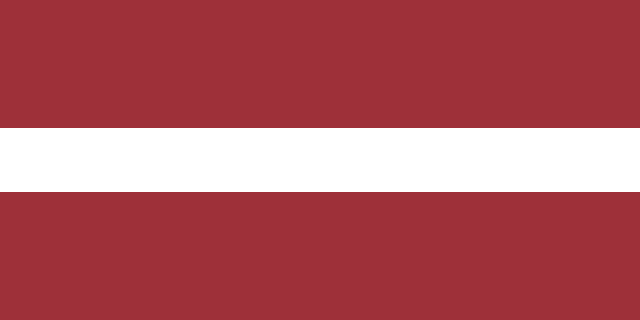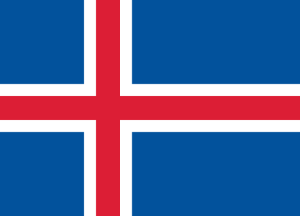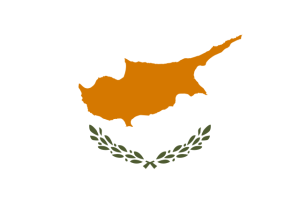The Republic of Latvia is a country in Northern Europe, on the eastern coast of the Baltic Sea. It is one of the three Baltic states and has been a member of the European Union since 2004. The capital of the country is Riga. Latvia borders Estonia in the north, Russia in the east, Belarus in the southeast, and Lithuania in the south.
1.884 million inhabitants live in Latvia.
According to the data of the Bank of Latvia, 693 thousand persons have valid obligations in the banking sector.
https://www.bank.lv/statistika/dati-statistika/kr-statistika#menesa-dati
The statistics of the Credit Register of the Bank of Latvia show that the majority of all loans issued in the banking sector are consumer loans, totaling 730 billion euros, followed by mortgage loans in the amount of 150 billion euros.
The statistics of the Bank of Latvia show that 65% of the loans issued by the banking sector are paid without delay, 13% have changed conditions, and 21.61%, or 241161 borrowers, are in the process of debt recovery, including the insolvency process.
Statistics conducted by sworn bailiffs show that currently 454,081 cases have been handed over for collection, of which 340,801 are civil claims, which is 24% of all Latvian residents.
https://www.lzti.lv/statistika/
According to the research carried out by the Ministry of Justice (TM), 69% of individuals in Latvia have liabilities. In the survey conducted by TM, 41% indicated that there is not enough information on what to do if they are unable to fulfill their obligations, 61% indicated that they do not know how to do it and rely only on themselves, 30% indicated that they do not know where to look for help.
Latvia has the highest percentage of persons (27%) in Europe which feel very much at risk of over-indebtedness (Eurobarometer 2010). In a recent Eurobarometer survey (Eurobarometer 2023) 66 percent of the Latvians describe the economic situation in their country as totally bad. This is in line with the fact that 44 percent of the Latvian households are inable to face unexpected financial expenses (EU-SILC survey 2022).
Debt counseling is only provided for a fee by private entities (i.e. lawyers, advocates and commercial companies) without well-designed debt counseling when consumers seek help and debt collection proceedings are already underway. As a solution to the problem, the insolvency process is offered in many cases, which is very expensive – the administrator’s compensation is 2 minimum wages (2*620 EUR), the state fee is 70 euros, and the monthly payment is 1/3 of all income, but not less than 1/3 of minimum wages (620/3=207 EUR). It should be noted that in the insolvency process, all the debtor’s property is sold for the forced sale value (almost for nothing).
For debts with a total amount of less than EUR 5,000, a small debt settlement procedure is applied for EUR 110, which applies only to officially recognized needy persons and only to non-bank loans (quick loans), provided that these people pass financial participation courses and a 2-year supervision period. 14 people have used it in the year since the law on the cancellation of small liabilities has been passed. Where nothing is to be extorted from needy persons, therefore this law is only in appearance, to pretend that something is being done.
Consumers with complaints about violations of consumer rights can turn to the Consumer Rights Protection Center (PTAC), which provides only general advice to consumers and not specialized services in debt matters. It operates under the Ministry of Economy on the basis of the Law on Protection of Consumer Rights, which is the main legislative act.
The Association “Latvian Consumer Interest Protection Association“ (Pateretajs /LPIAA) is a non-for-profit NGO which mission is to protect the rights and legitimate interests of Latvian consumers, as well as promotion of their observance in various sectors of the economy and society as a whole, including providing support and assistance in solving consumer problems.
According to an evaluation conducted by VVA & CEPS 2021, only 0,3 percent of the Latvian people in arrears receive debt advice. Thus there is a big need for a better provision of debt advice in Latvia.
Just recently a project by the European Bank for Reconstruction and Development (EBRD), in cooperation with the European Commission (Directorate-General for Structural Reform Support) and a consortium of financial, legal, and communication experts finished an evaluation of the information resources on financial distress available to stakeholders in Latvia.
The project showed that a high number of people have searched for information on the management of financial distress in the past, especially in the consumer group, and that the awareness of the options available to deal with financial distress is low.
A key outcome of the project is thus a new action plan, issued by the Ministry of Justice, for engaging with individuals and businesses seeking information on financial distress. (Source: Ministry of Justice 2021, https://www.tm.gov.lv/)
Summarizing all the information we have about debt counseling, we can conclude that in Latvia:
- There is no one specific Debt Counseling service provider, there are many players who provide different services;
- Each participant tries to achieve their goals, but coordination is poorly developed or absent at all;
- One attempt is the TM project, but this had a narrow focus and did not include non-governmental organizations;
- Therefore, until the PEPPI project, no one has tried to identify all the actors in this field;
It should also be noted that this is a preliminary analysis.
With the financial support of the EU and with the content-related
support of ecdn a website about financial and debt management for
Latvian consumers is now available: https://paradupaligs.lv/



